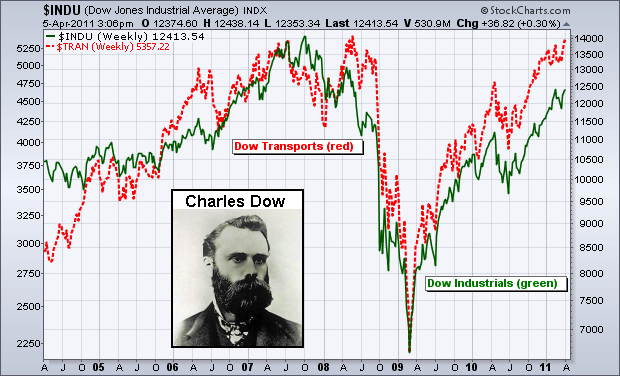Dow Theory
Post on: 23 Сентябрь, 2015 No Comment

Money magazine periodically has an issue where they discuss what to do with $1,000, $10,000, or $100,000. Im always amazed at their suggestions since most involved spending the money rather than investing or saving. The latest issue advises spending the $1,000 on a new suit for interviews as one suggestion. Other suggestions may be electronics or appliances. It seems that to the writers of Money. the humble $1,000 is not worth the time to keep around so you might as well blow it on the latest gadgets.
Those who can do compound interest, however, know what can happen to $1,000 if you let it grow. Assuming a 10% rate of return, that $1,000 would double every 7.2 years. So, $1,000 invested when you are 20, would be $2,000 at 27, $4,000 at 34, $8,000 at 41, $16,000 at 48, $32,000 at 56, $64,000 at 63, and $128,000 at 70. Put that $1,000 together with ten of its friends, and you could become a millionaire even if you spent every other penny you made.
So what would I do with $1,000, $10,000, or $100,000 right now? Here are some suggestions.
What to do with $1,000.
- Put it in a money market fund and keep it as an emergency fund. The next time the car breaks down, Ill have the cash ready.
- Pay down some credit card debt. This is like investing at 18%, meaning it is like saving $1000 every 3 years.
- Pay a couple of extra payments on the home. If you make just one extra payment on a 30 year mortgage a year, youll pay it off about 8 years early. With a $1,000 per month payment, that is a savings of about $74,000.
- Put it in a CD and then save up $1,000 to $3,000 more to invest in an index fund or shares of a young growth company. Make this a regular practice and youre on the path to becoming wealthy.
What to do with $10,000.
- Fund your IRA and that of your spouse. Retirement may be a ways off but youll need a lot of money when you get there for necessities and medical bills.
- Start an educational IRA for your kids. If youre hoping for your kids to go to college, you need to start saving early. You can put $2,000 per child into an educational IRA that is tax-free for educational expenses.
- Buy shares of a large cap and a small cap index fund or index ETF. Index funds have low costs, which will make a big difference over time. Buying two sectors of the market reduces volatility.
- Buy 100 shares each of 3-5 of your top stock picks. Add to these positions over time, gradually diversifying into more stocks and mutual funds as you get older and your portfolio grows.
- Pay off your credit cards. At 18% interest, youll be saving $10,000 every three years!
- Pay off your cars, or buy a quality 3-5 year old used car. Not having a car payment will allow you to pay cash for cars from now on if you save up the money you would have been putting towards payments, even after paying for repairs.
What to do with $100,000.
- Pay off any remaining debts, except for maybe the house. Paying off debts increases the amount of money you have available since you are no longer losing money to interest. With rates as low as they are, keeping a home mortgage might make sense to have some money for investing, but there is also no other feeling like owning your home outright.
- Buy a set of index funds. Include large cap stocks, small cap stocks, real estate (through REITs), and income stocks. Consider international stocks as well. Bonds also belong in your portfolio, but they are to risky right now due to the low-interest rates.
- Buy 500 shares each in 1-3 stocks that are the best performing growth stocks in their industries. Keep these positions small enough that you can stand a loss should one of them fail outright.
Disclaimer: This blog is not meant to give financial planning advice, it gives information on a specific investment strategy and picking stocks. It is not a solicitation to buy or sell stocks or any security. Financial planning advice should be sought from a certified financial planner, which the author is not. All investments involve risk and the reader as urged to consider risks carefully and seek the advice of experts if needed before investing.














